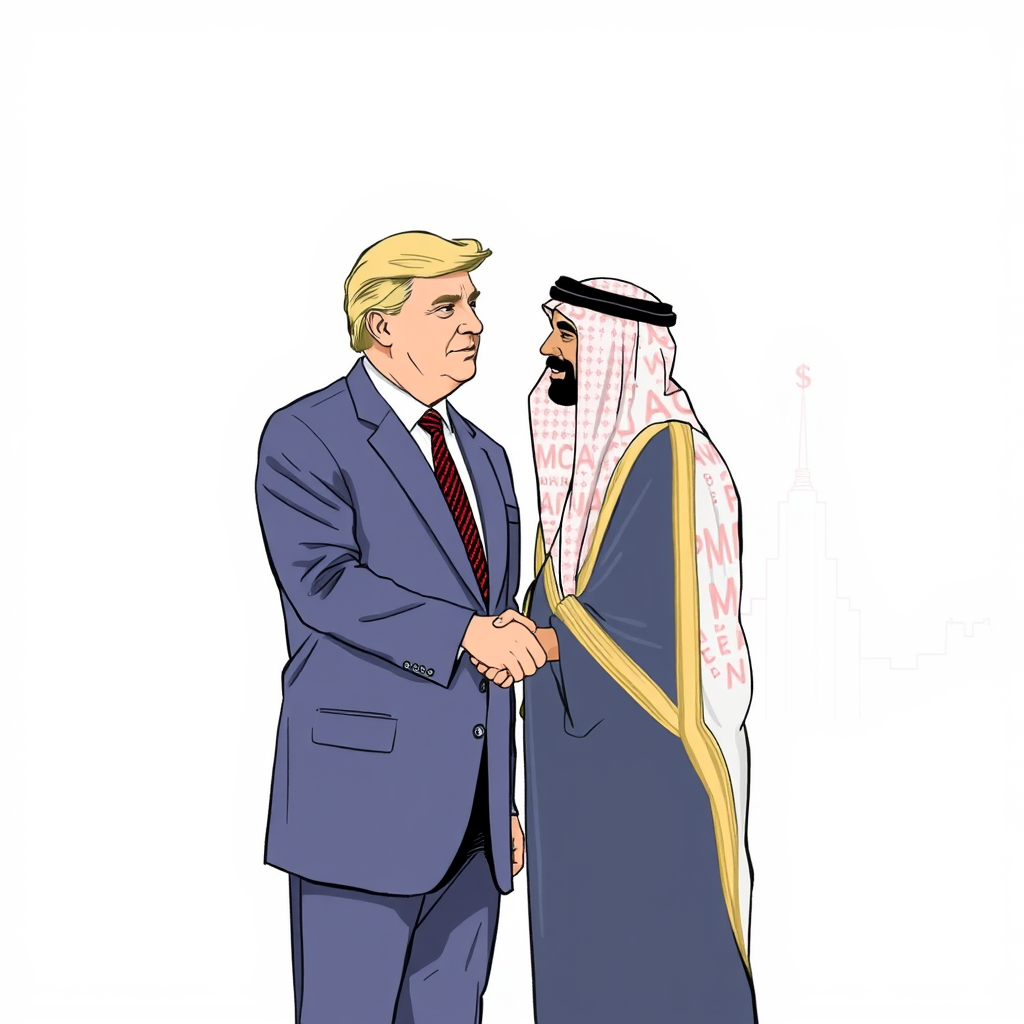Trump’s Unexpected Appeal to Saudi Arabian Fans

During a four-day visit to Saudi Arabia, former President Donald Trump garnered surprising support among young Saudis, according to a recent report by The New York Times. The report details a perceived kinship between Trump’s business and political practices and the norms within the Saudi kingdom, where familial ties and overlapping interests between government and business are commonplace. The Trump Organization maintains significant business interests in Saudi Arabia, and government officials frequently serve on corporate boards.
The Times noted that Trump’s reliance on close associates for advice and his conservative rhetoric particularly resonated with some Saudis. One 40-year-old man quoted in the article praised Trump’s directness, stating, “He says what’s on his mind, and he doesn’t care about what people think. Trump is about being yourself.” A 30-year-old Riyadh resident went further, expressing affection for the former president and claiming, “The best thing he did is he stopped homosexuals.”
The apparent disconnect between Trump’s domestic policies and the perceptions of his Saudi admirers was highlighted by an ironic detail: during his visit, Saudi officials played Trump’s campaign anthem, “YMCA” by the Village People, a song widely associated with gay pride.
The New York Times acknowledges the difficulty of gauging public opinion within Saudi Arabia, where reliable polling data is scarce. However, the report indicates that while some Saudis expressed reservations about Trump’s perceived “whitewashing” of the reputation of Crown Prince Mohammed bin Salman – linked by U.S. intelligence to the 2018 killing of journalist Jamal Khashoggi – many others viewed him favorably.
During the visit, both leaders engaged in effusive praise, with Mohammed bin Salman addressing Trump as “my dear President Trump” and Trump reciprocating by calling the Crown Prince “an incredible man” and “my friend.” The visit culminated in a pledge of $600 billion in investment from Mohammed bin Salman.
It’s a fascinating, and frankly unsettling, dynamic. The report underscores how perceptions of strength and a rejection of perceived Western social norms can transcend ideological differences, even to the point of garnering support from a nation with vastly different values. The fact that some Saudis credit Trump with “stopping homosexuals” – a statement rooted in prejudice and misinformation – reveals a disturbing alignment of values based on shared conservatism, and highlights the complex interplay between international relations, domestic politics, and cultural perceptions. It’s a stark reminder that political alliances aren’t always built on shared ideals, but often on pragmatic interests and a mutual understanding of power dynamics.